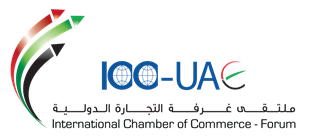Halal Food And Key Issues

Although the economies of the several Gulf countries are not counted as few of the largest in the world, there are several factors that make this part of the world very attractive to international companies and businesses.
The region, especially the UAE, is extremely popular for tourism, and beyond that, a haven for people who want to live and work in the country.
The constantly expanding economy and the high standard of living, coupled with their being reliable and stable government and politics, an ample supply of fuel and electricity, and impressive social indicators make the region ripe for foreign investment and foothold.
Economic Contribution
The food industry in the region is also very lucrative, bringing all major food joints and restaurants to its shores. It is rare to not be able to find an eatery or a chain that has a presence in the west and not here.
The substantial presence of international brands and cross-cultural transfer makes it very important for food regulations in Dubai to be enforced strictly.
As with several other issues and areas of high importance, ensuring that the food sold to the public is safe and hygienic is high on the priority list of local authorities.
Apart from the staple requirement that all food served and sold be Halal, that is, ought not to include any prohibited ingredients and be reared and processed according to relevant Islamic laws and regulations, there are a number of requirements for the handling of food that mainly have to do with ensuring it is clean and free from contaminants like bacteria, and further, is handled is sanitary ways.
Code Requirements
The food regulations in Dubai pertain to procedural requirements, including the cooking, handling, storing, and serving processes.

The city has a plethora of food sale and handling establishments, including those at every step of the chain, estimated to be ranging in the several thousands.
The city satisfies a lot of its food requirements through the import of food, and it is estimated that the amount that is brought into the country is about 10 million tons, which comes from dozens of countries across the world.
Like any other constantly expanding city of region, the food industry, especially the number of restaurants and eating joints has risen rapidly, which means a more accurate food code.
Sanitation And Safety
The code targets risky areas that have to do with the handling of food, including properly inspecting the materials that are going to be used in the preparation, and throwing away items that seem to be expired or carry a smell.
The food is required to be used, refrigerated, and used within two days, and specifically in the handling sense, is to be catered to only by people wearing hairnets and proper gloves.


